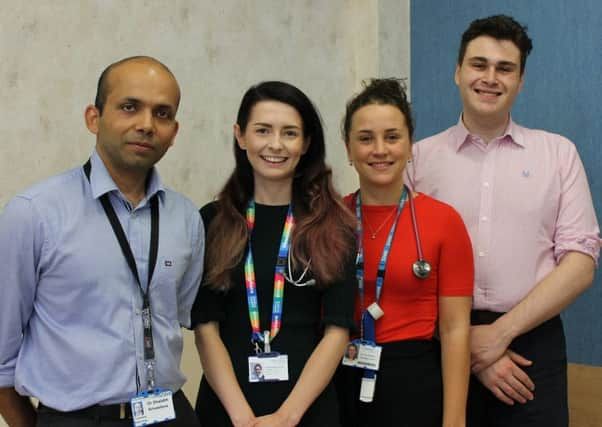Joint working between health trusts helping to improve outcomes for kidney patients, say bosses


Acute kidney injury is a common problem which can result in patients becoming very sick.
In its most severe form it can lead to treatment in intensive care and may require dialysis or even lead to death.
Advertisement
Hide AdAdvertisement
Hide AdIt can be caused by dehydration – particularly common among elderly people suffering from flu or the Norovirus ‘winter vomiting bug’.
Leading UK kidney specialist, Dr Shalabh Srivastava, who last year became the first ever kidney consultant at South Tyneside District Hospital after taking up a joint post across South Tyneside and City Hospitals Sunderland NHS Foundation Trusts, has been leading a quality improvement initiative to improve the management of patients.
Steps taken to improve outcomes for South Tyneside patients include the introduction of a special education programme for junior doctors, frontline nursing staff and GPs to increase awareness about acute kidney injury.
A comparison of the results of medical care and outcomes for South Tyneside patients who developed the most severe form of acute kidney injury, or AKI-3, during a three-month period in 2016 showed a 17% overall reduction during the same period in 2017 – from 82 to 68 cases.
Advertisement
Hide AdAdvertisement
Hide AdDr Srivastava said: “The overall reduction in the incidence of AKI-3 suggests that recognition of, and intervention for, acute kidney injury at an early stage is improving both in the community health setting and in hospital inpatients.
“A reduction in hospital admissions for the problem also indicates that earlier recognition and prompt intervention is proving effective, as does the significant improvement we have seen in the renal function of patients on discharge.”